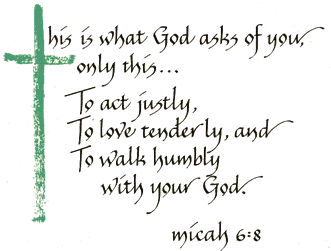catholicPittsburgh.org is the place for information, news, commentary, reflections and community building among the people of God who are renewing the Catholic Church in Western Pennsylvania.
More about us
Welcome ...
Partnering Groups
The following organizations are partners with catholicPittsburgh.org:
Celebrate Surprise and Mystery
Reflections on the Epiphany of the Lord
By Greg Swiderski
The readings for
this Sunday:
In 1992 the National Gallery of Art in Washington, DC featured a display titled: Art in the Age of Exploration: Circa 1492. Artistic endeavors from all over the world were there to be enjoyed and celebrated. It included the first ever painting of a native American (Tupinamba of Brazil) as one of the three distinguished gift bearing visitors.
Epiphany marks the church’s feast of this unusual manifestation.
Einstein wrote that imagination was more important then knowledge. This feast captures the imagination through the ages and thus, the 1501-1502 painting. However, there is more to engage our creative spirit: Tradition (and a popular carol) has called them kings; established that there were three when Matthew gives no number; later they even received names. Some people bless their homes to honor their visit and recognize that all who walk through this door need to be welcomed in the surprising spirit of their story.
We must ask ourselves why Matthew included such a strange and colorful revelation in this sacred beginning of the Christ event.
In Paul’s letter to the Ephesians he writes that “the mystery was made known to me by revelation.” Mystery seems a core word and experience to acknowledge and explore.
Again, Einstein who seems valued for his intelligence, wrote: “The most beautiful thing we can experience is the mysterious. It is the source of all true art and science. He to whom this emotion is a stranger, who can no longer pause to wonder and stand rapt in awe, is as good as dead: his eyes are closed.”
We citizens of the most powerful nation on the earth breathe a Culture of Mastery. From the moment we arise to when our eyes close we depend upon technology. We can survive bone chilling cold or oppressive heat. We have moved mountains to build homes and roads. We have gone to the moon and to the bottom of the ocean.
Whenever we confront that which we cannot master: tsunamis in the Indian Ocean or an obstreperous child, we feel inadequate and frustrated. We don’t deal well with those experiences because we like being in control.
Religion and spirituality help us navigate this Culture of Mystery. Control freaks seem uncomfortable in this place. Is “organized religion” an oxymoron? It attempts to make sense (give us some control) over that which remains ever illusive and impossible to even name. Have we created G-d in this control image? Why have we avoided divine uncertainty and holy confusion? Try this: say Mystery every time you invoke the familiar G word. Does it make any difference?
We know that these surprising visitors were more like astrologers; star gazers and followers. As the Church celebrates their encounter with Divine Mystery, may we be nourished by Eucharist so we will welcome unknown and uncertain darkness for without the night these people of magic and fire would not have found their way; if they had not listened to their dreams (again, night experiences) would salvation history have been changed?
- By GregSwiderski at Dec 29 2004 - 5:39pm
- Reflections
Micah 6:8

©1996 Cards by Anne
Used with permission